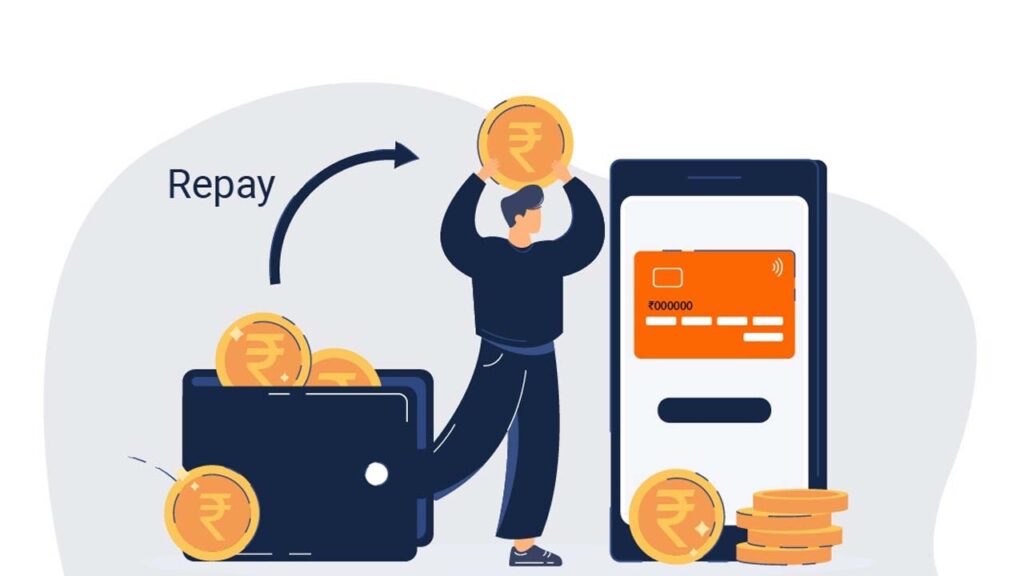SGDLoan.com – For many Non-Resident Indians (NRIs), staying financially connected to India is not just a preference — it’s a necessity.
Whether it’s supporting your family, investing in real estate, managing emergencies, or planning for long-term goals, having access to flexible financing options is crucial.
A personal loan for NRI in India offers a simple, collateral-free way to borrow funds to meet a wide range of personal needs.
With a growing number of Indian banks now offering tailored financial products for NRIs, the loan process has become more accessible, secure, and digital.
In this guide, we’ll cover every important aspect you need to know — from understanding eligibility and documentation requirements to choosing the right bank and applying smoothly from abroad.
Understanding Loans for NRIs in India

Loans for NRI in India are typically structured with the unique circumstances of overseas applicants in mind. Since NRIs often earn in foreign currencies, the risk perception for banks is slightly different from that of domestic borrowers. As a result, while the product itself — a personal loan — is similar in structure, the processing and terms are tailored to ensure compliance with India’s financial laws and cross-border lending norms.
A personal loan for NRI in India is unsecured, meaning you don’t have to offer any security like real estate or fixed deposits. It’s typically offered for personal use cases — such as medical bills, home renovation, travel expenses, or wedding costs — and doesn’t require you to specify how the funds will be used.
Many NRIs also use these loans to manage liabilities in India, support dependent family members, or invest in short-term goals like education or entrepreneurship.
Eligibility Criteria for NRIs Applying for Personal Loans

To ensure you qualify for a personal loan, it’s essential to understand what banks look for before approving an NRI loan application. While policies vary slightly between financial institutions, the general eligibility requirements are fairly consistent across the board.
Below are the typical parameters banks consider:
Age Requirements
Most banks require applicants to be between 21 and 60 years of age at the time of loan maturity. Some banks may extend the upper limit for self-employed NRIs.
Employment & Income Stability
Applicants must be either salaried or self-employed professionals with a steady income. Salaried NRIs should have a minimum of one year with their current employer, while self-employed individuals should demonstrate at least two years of business stability.
Minimum Income Threshold
Income requirements often vary by country of residence. On average, banks expect a minimum annual income of around USD 25,000–30,000 or its equivalent in other currencies.
Co-Applicant Requirements
Most banks require a resident Indian co-applicant, usually a close family member such as a spouse, sibling, or parent. This ensures better credit control and simplifies legal proceedings if required.
Credit History
A good credit score in India (CIBIL) or abroad is essential. While not all NRIs have an Indian credit history, some banks may also evaluate international credit scores or use the co-applicant’s CIBIL report as a benchmark.
Other Considerations
Banks may also factor in the applicant’s country of residence, nature of employment (e.g., blue-collar vs white-collar), and repatriation potential when evaluating risk.
Required Documentation for NRI Loan Applications

To streamline your application and reduce delays, ensure all documents are in order before applying. Indian banks require NRIs to submit both identity and financial proofs, verified either through embassy attestation or notarisation depending on bank policy.
Here’s a checklist of documents typically required:
Identity & Citizenship Proof
- Valid passport with clear pages
- Work permit, visa, or permanent resident card
- OCI (Overseas Citizenship of India) or PIO (Person of Indian Origin) card if applicable
- PAN card (mandatory for financial transactions in India)
Address Proof (Both Overseas and Indian)
- Latest utility bills (electricity, water, gas)
- Overseas bank statement
- Rental agreement or property ownership proof
- Indian address proof of the co-applicant
Income Documents
- Salary slips (last 3-6 months)
- Latest tax returns or income tax certificate from your country of residence
- Employment contract or offer letter
- Recent overseas bank statements showing salary credits
Additional Documents
- Power of Attorney (PoA) if applying from abroad
- Passport-sized photographs
- Co-applicant’s KYC and income documents
Ensuring completeness and clarity in your documentation is key to avoiding unnecessary back-and-forth with the bank.
Top Indian Banks Offering Personal Loans to NRIs

Indian banks are increasingly recognising the potential of the NRI segment and have customised several offerings to serve this group better.
Here’s a comparative table of some top banks:
| Bank | Max Loan Amount | Interest Rate (p.a.) | Loan Tenure | Unique Features |
|---|---|---|---|---|
| ICICI Bank | ₹50 lakhs | From 10.85% | Up to 60 months | NRI-specific PoA options, no collateral, high approval ratio |
| HDFC Bank | ₹40 lakhs | 10.85% – 24% | Up to 72 months | Dedicated NRI relationship managers and simplified documentation |
| Axis Bank | ₹10 lakhs | 11.25% – 22% | Up to 60 months | Attractive rates for salaried NRIs and digital application system |
Make sure to also explore smaller private banks and NBFCs (Non-Banking Financial Companies), which may offer more flexible criteria, especially for self-employed NRIs.
How to Apply for a Personal Loan for NRI in India

The loan application process is relatively straightforward but does require preparation and attention to detail.
Here’s a step-by-step breakdown:
- Shortlist Suitable Banks
Begin by comparing different loan products online, focusing on interest rates, maximum loan amounts, processing fees, and approval times. - Check Your Eligibility
Use online eligibility calculators to determine your chances of approval before submitting a formal application. - Prepare Your Documentation
Ensure all required documents are scanned, self-attested, and translated (if necessary). Most banks also require recent photographs and original documents for verification. - Choose a Co-Applicant (if required)
Your co-applicant should be a trusted Indian resident who can provide their KYC and income documents. This individual will be equally responsible for loan repayment. - Fill Out the Application Form
Depending on the bank, you can apply through an online portal, email submission, or physically through a branch or legal representative using a Power of Attorney. - Await Verification and Sanctioning
After submission, the bank verifies documents and assesses risk. They may also contact you or your co-applicant for additional clarification. - Loan Disbursement
Upon approval, the loan amount is credited to the specified account, often the co-applicant’s Indian bank account or an NRO account belonging to the NRI.
Benefits of Choosing a Personal Loan for NRI in India

A personal loan for NRI in India comes with many advantages that make it a suitable option for fulfilling financial needs without interrupting your overseas commitments.
No Collateral Needed
Unlike secured loans, you don’t need to pledge any assets, which makes the process quicker and more accessible.
Flexible Usage
You are not required to disclose or justify the exact use of funds, making it perfect for diverse needs such as education, travel, or emergency expenses.
Digital-Friendly Process
With most banks offering complete online servicing and dedicated NRI desks, you can manage the loan process without being physically present in India.
Attractive Repayment Tenures
You can opt for flexible EMIs spread over 12 to 72 months, allowing you to manage your overseas and Indian finances smoothly.
Secured vs Unsecured Loans: What Should NRIs Choose?

Understanding the pros and cons of secured and unsecured loans is crucial when deciding which route to take.
| Loan Type | Requires Collateral | Interest Rate | Loan Amount | Processing Time | Risk to Assets |
|---|---|---|---|---|---|
| Secured Loan | Yes (property, FDs) | Lower | Higher (₹50L+) | Longer | Yes, if repayments default |
| Unsecured Loan | No | Slightly Higher | Moderate (₹1-20L) | Faster | None |
If you need a larger sum and have collateral in India, a secured loan might be better. But if you want fast disbursement without putting your assets on the line, unsecured personal loans are ideal.
Repayment and Repatriation Rules

Loan repayment for NRIs must follow RBI’s strict remittance and repatriation rules. Most banks will ask you to repay through your NRO account, which is linked to your Indian earnings. In some cases, NRE accounts are also permitted, especially if the loan was disbursed into one.
Repatriation — i.e., transferring money back to your resident country — is generally restricted for loan amounts. However, any legal income you earn in India can be repatriated within the limits set by the RBI.
It’s crucial to discuss these details with your bank at the time of signing your loan agreement to avoid confusion or penalties later.
How to Open NRO and NRE Accounts as an NRI

Before applying for any loan or handling finances in India, it’s recommended that you open the necessary accounts.
NRO Account (Non-Resident Ordinary)
Used to manage income earned in India, such as rent, dividends, or pensions.
Required for most loan repayment setups.
NRE Account (Non-Resident External)
Used to park foreign earnings in India. Funds in this account are freely repatriable.
Opening both accounts can streamline your loan repayment and income management, making it easier to meet your obligations in India while living abroad.
A personal loan for NRI in India is not only possible but increasingly accessible thanks to digital banking, simplified documentation, and dedicated NRI service desks.
As an NRI, taking the time to choose the right bank, verify your documents, and understand repayment guidelines will ensure a smoother experience. Banks like ICICI Bank and HDFC Bank offer highly rated NRI loan services that include customer support across time zones, dedicated NRI portals, and transparent loan conditions.
By carefully comparing offers and maintaining good financial hygiene — including your credit score and repaying EMIs on time — you can make the most of financial opportunities in India without physically being present.
One of the trusted sources for this information includes ICICI Bank’s official NRI loan guide, which details both secured and unsecured options and the flexibility offered for overseas applicants.









